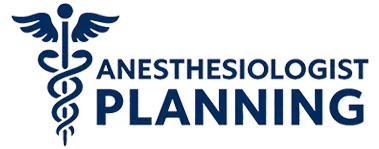
Accounting for Anesthesiologists: 5 Tips for Growth and Financial Stability
Accounting for Anesthesiologists: 5 Tips for Growth and Financial Stability
Anesthesiologists face unique financial challenges compared to many other physicians. Since income often comes from multiple hospital contracts, group practices, and surgical centers, managing cash flow can be complex. On top of that, anesthesiologists juggle malpractice insurance, staff costs, and the need to plan for retirement from a high but often volatile income stream. Strong accounting ensures financial stability, reduces tax burdens, and provides a clear roadmap for both practice and personal wealth.
In this article, we'll cover the top 5 essential accounting services anesthesiologists should consider:
→ Speak with a CPA for tailored options for you
1. Bookkeeping Services for Anesthesiologists
Bookkeeping is the foundation of every financial system, and for anesthesiologists, accuracy is non-negotiable. Many anesthesiologists work across multiple hospitals, surgery centers, or private practices, creating income streams that must be tracked carefully.
Bookkeeping services typically include:
Categorizing income and expenses – Breaking down income by contract or facility ensures clear reporting and maximizes deductions.
Reconciling bank and credit accounts – Helps prevent errors, missed payments, or fraud while keeping financials accurate.
Managing accounts payable and receivable – Ensures vendor bills, staff payments, and reimbursements are handled promptly.
Tracking payroll, equipment, and shared overhead – Group practices often share resources, making accurate allocation critical.
Monthly reporting – Keeps anesthesiologists informed about profitability and cash flow in real time.
A CPA not only handles these tasks but also turns financial data into insights, helping anesthesiologists make smarter business decisions.
2. Tax Preparation and Tax Planning for Anesthesiologists
Anesthesiologists are high-income earners, which means taxes are often one of their largest expenses. Without careful planning, much of their income can be lost to federal and state tax obligations. A CPA provides both compliance and strategy, ensuring that taxes are minimized legally and efficiently.
Tax planning strategies include:
Maximizing deductions for malpractice premiums, continuing medical education (CME), and professional expenses.
Structuring income between salary and profit distributions in partnerships or corporations for tax efficiency.
Leveraging retirement accounts like 401(k)s, profit-sharing plans, or defined benefit plans to reduce taxable income.
Depreciating equipment or office expenses strategically to reduce annual tax burdens.
For anesthesiologists, proactive tax planning can save hundreds of thousands of dollars over a career. Coordinating with your financial planning and estate planning ensures these savings translate into long-term wealth preservation.
3. Payroll Management
Anesthesiologists in group practices often employ staff, CRNAs, and administrative teams. Payroll errors or compliance issues can create legal problems and hurt morale, making accurate payroll essential.
Payroll services include:
Processing payroll and withholdings for staff and contractors with accuracy.
Filing payroll tax forms on time to avoid penalties.
Managing employee benefits such as retirement contributions and health insurance.
Ensuring compliance with labor laws across state and federal levels.
A CPA not only handles payroll processing but also sets up systems that scale as practices grow. For anesthesiologists in leadership roles, outsourcing payroll provides confidence that staff are paid correctly and compliance obligations are always met.
→ Speak with a CPA for tailored options for you
4. Financial Forecasting & Advisory
Anesthesiology income can vary depending on contracts, reimbursement rates, and scheduling demands. Forecasting provides clarity in an otherwise unpredictable environment.
Advisory services often include:
Projecting income and expenses based on hospital contracts and workload.
Modeling new opportunities such as expanding into outpatient centers or adding new partners.
Evaluating financing options for shared equipment purchases or office upgrades.
Analyzing reimbursement risks to anticipate and prepare for potential revenue changes.
This forward-looking approach gives anesthesiologists the ability to plan for income fluctuations, allocate resources wisely, and set long-term goals with confidence. When tied to exit planning, it ensures financial stability even during career transitions.
5. Comprehensive Accounting Support for Anesthesiologists
The best accounting solutions combine day-to-day accuracy with strategic planning. For anesthesiologists balancing complex schedules and multiple income sources, comprehensive accounting provides peace of mind.
Comprehensive services typically include:
Ongoing bookkeeping and reporting to monitor profitability.
Tax compliance and planning to minimize liability year after year.
Payroll and benefits management for staff and group practice members.
Financial forecasting to prepare for practice growth or market shifts.
Collaboration with attorneys and wealth advisors to align practice finances with personal goals.
This integrated support system ensures anesthesiologists have the tools to not just manage income, but to build lasting wealth and protect their financial future.
Smart Planning for Long-Term Financial Security
Good accounting is about protecting income, preparing for growth, and planning for retirement. For anesthesiologists, a CPA offers critical support in managing cash flow, reducing taxes, and creating long-term stability. With the right accounting partnership, you can focus on patient care while knowing your financial future is secure.
→ Speak with an Accountant to get started
Frequently Asked Questions About Accounting for Anesthesiologists
1. What services does accounting provide for anesthesiologists?
Accounting services for anesthesiologists include bookkeeping, payroll, tax preparation, financial forecasting, and compliance. A CPA also helps with practice growth strategies and long-term planning.
2. How can tax planning save anesthesiologists money?
Tax planning allows anesthesiologists to reduce liability through deductions, retirement contributions, and income structuring. Over time, this proactive approach helps preserve wealth and create more cash flow for reinvestment.
3. Why outsource bookkeeping and payroll in my practice?
Outsourcing to a trusted accountant ensures accurate records, compliance with tax laws, and efficient payroll management. It saves time while providing the reliable financial data needed for practice growth and decision-making.
4. How does accounting help anesthesiologists prepare for retirement?
A CPA supports retirement planning by modeling income needs, maximizing tax-advantaged savings, and preparing practice valuations for a future sale or transition. This ensures anesthesiologists can retire with financial security.

